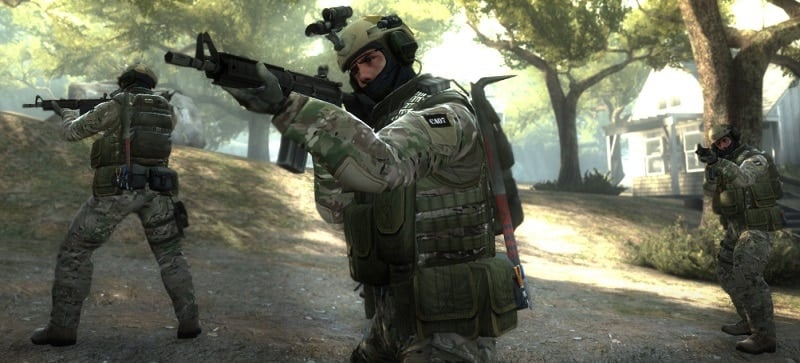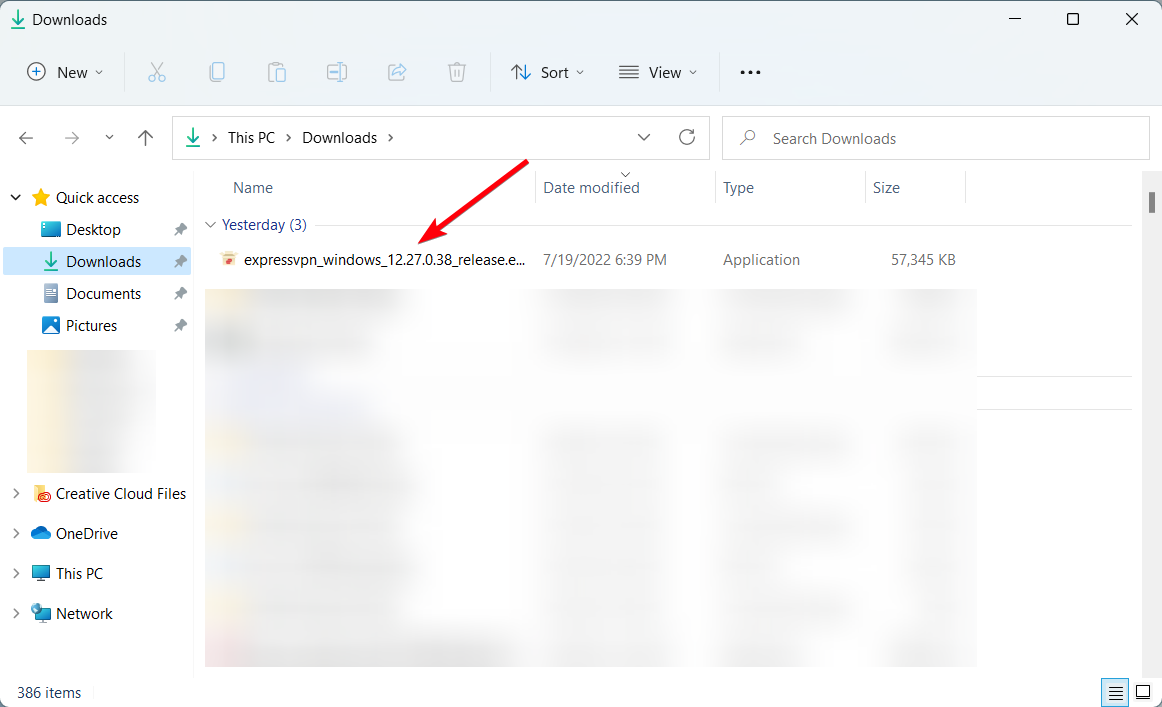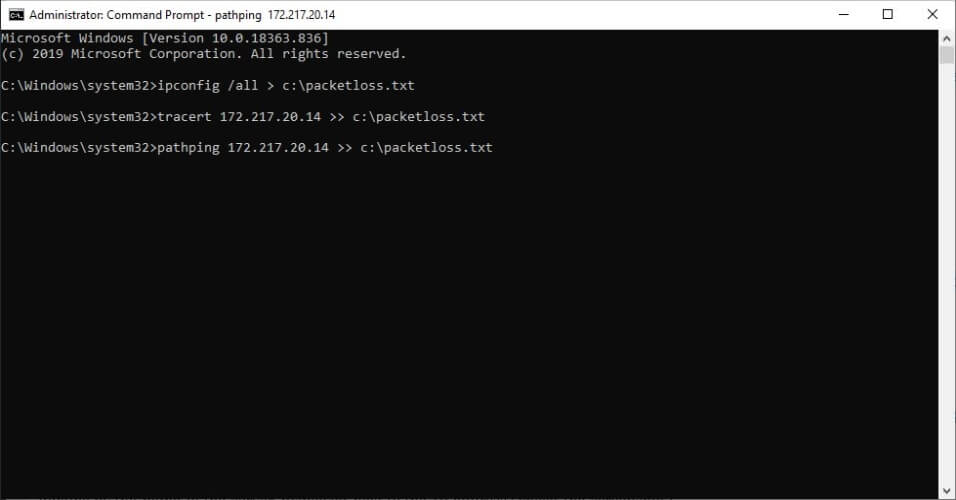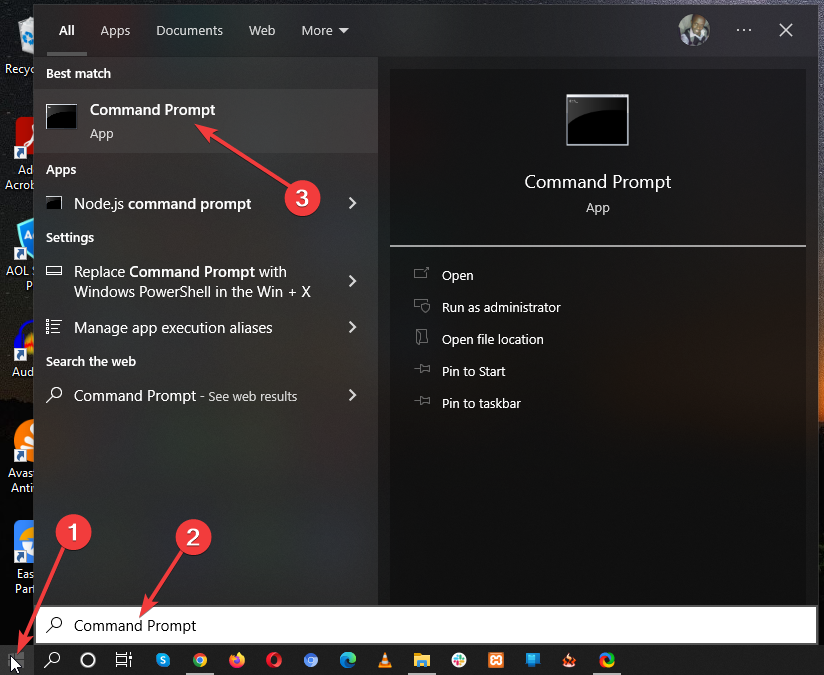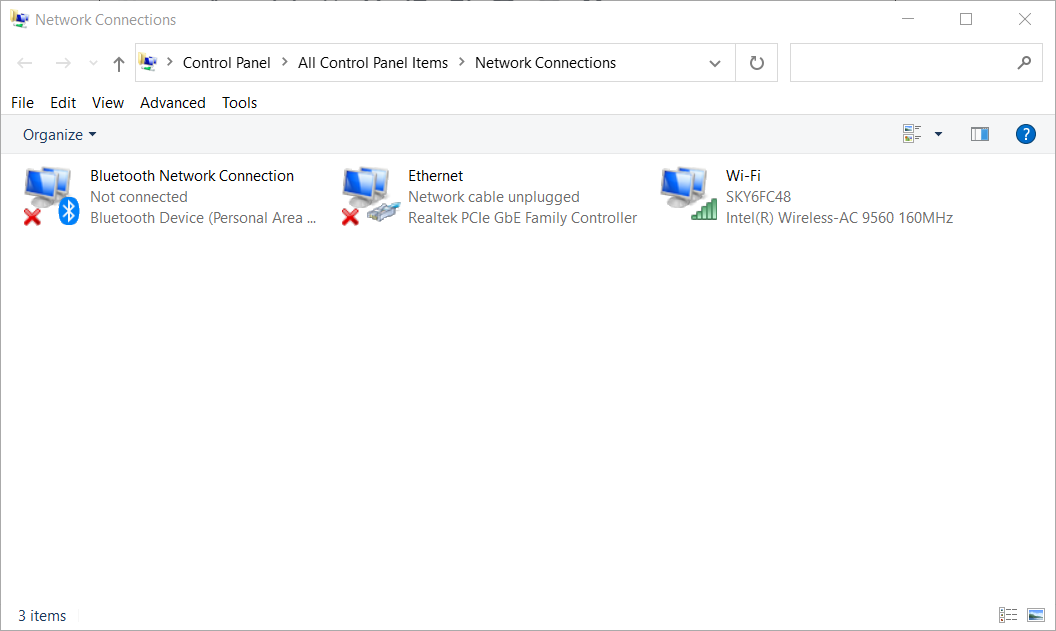CS:GO Packet Loss: What Causes It And How to Fix?
- Counter-Strike: Global Offensive is a popular game from Valve that took the world by storm. It's based on teaming up and defeating the opposing force.
- As with any other online service, packet loss is a serious issue that affects CS: GO and its players all around the world.
- We can't stress this enough, but more often than not, even a severe packet loss storm fixes itself.
- If you find yourself in this situation, go through the steps listed in the article and find out how to fix CS:GO packet loss.
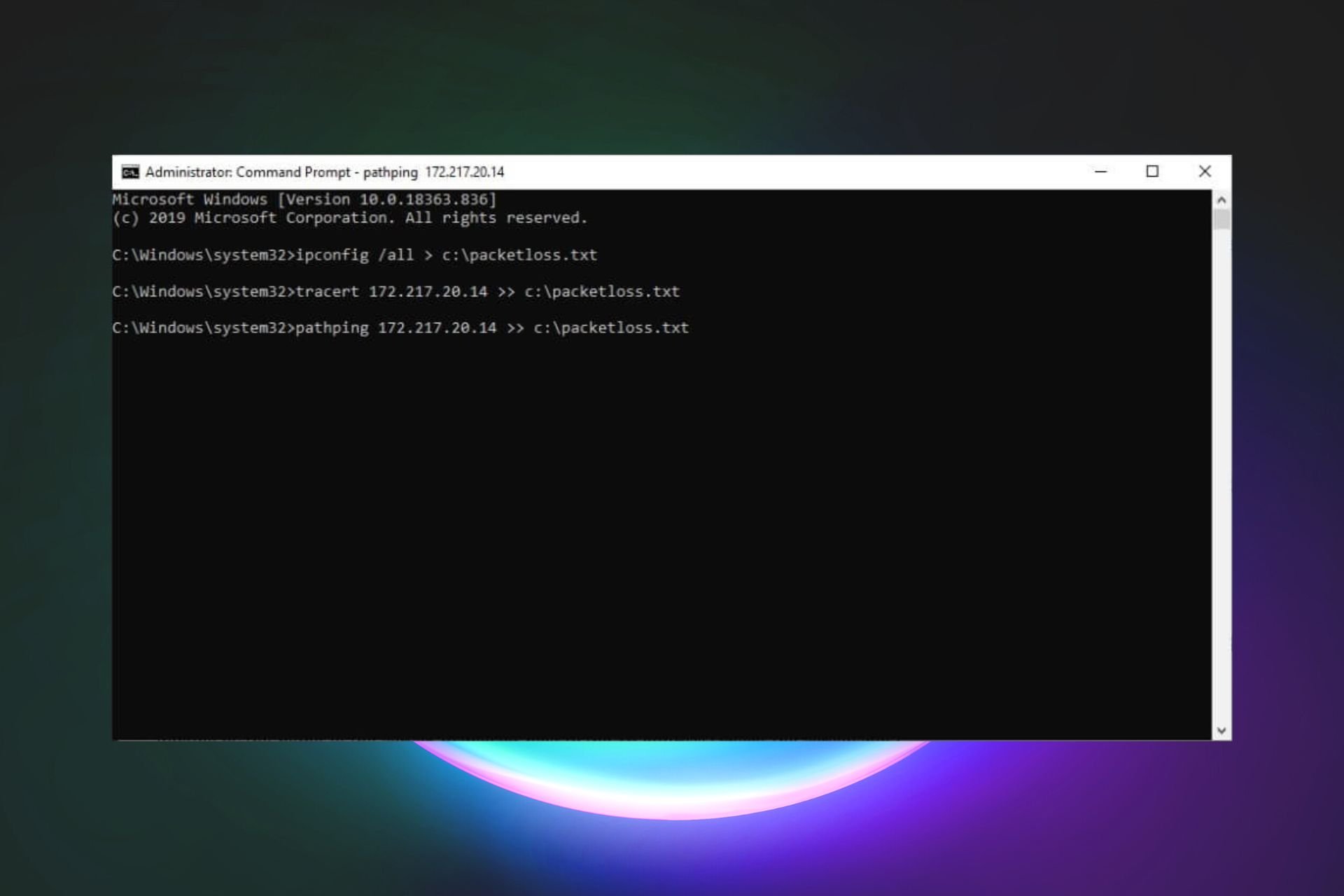
Counter-Strike: Global Offensive is a popular game from Valve that took the world by storm. More so since it’s become a free-to-play game, which upset a lot of players who paid for it. But that’s not what this is about.
If you’re not familiar with the concept, since its dawn, Counter-Strike has been about defeating the opposing force. Yeah, pun intended. You pick a side (terrorists and counter-terrorists) and you go bananas obliterating the enemy team.
It’s all harmless fun until you wake up one day and you’re competing in one of the world’s most prestigious eSports competitions. You’re there, heart pounding, knees weak, but you’re confident in your skills.
What is packet loss in CS:GO?
Truth be told, packet loss behaves almost the same regardless of where you encounter it. It happens whenever data packets you send or receive never make it to their destination.
As a result, you might experience subsequent issues such as high ping, rubberbanding, game freeze, or connection timeouts. Usually, packet loss has a come-and-go nature and doesn’t linger around for too long.
To put it shortly, if you try to explain to yourself what packet loss looks like in CS:GO is quite the fuss. Everything is slow and jittery, and sometimes you or other players will rubberband.
Overall, the whole game experience will be awful, or unenjoyable to say at least. Firstly, and most importantly, make sure you meet CS:GO PC recommended requirements:
| CPU: Intel Core 2 Duo Processor E6600 2.4 GHz or AMD Phenom X3 8750 2.4 GHz processor | |
| GPU: Any video card with 256 MB of VRAM or higher | |
| RAM: 2 GB of memory | |
| HDD: 15 GB of free space | |
| OS: Windows 8 or higher | |
| DirectX: 9.0c or higher | |
| Shader Model: 3.0 or higher |
Why does CS:GO lose packets?
The one thing that could stand between you and your well-deserved trophy is a poor Internet connection. And it happens. You take the decisive shot, and your opponent grabs the opportunity and defeats you.
Packet loss is, unfortunately, one of the worst issues you may encounter while playing CS:GO. Alongside jitter and high ping, packet loss is by far the least convenient one. And you’ll see why in just a few.
Mainly because network congestion is one of the most common causes of leaking packets. A quick fix for this would be avoiding peak hours, but we know that sometimes that’s simply not possible.
How to fix packet loss in CS:GO?
1. Restart your modem and router
If you are experiencing latency issues, the first thing you should do is restart your modem and router, especially if they have been turned off for an extended period of time.
This should clear up any cache that has accumulated and, in most cases, resolve the issue.
- Close any related activities with CS:GO and Steam in Task Manager.
- Turn off your PC.
- Unplug your modem and router for at least 30 seconds.
- Reconnect them and wait until they are fully operational (the indicator lights are back to their normal state).
- Restart your PC and relaunch CS:GO to see if everything is working properly.
2. Use a VPN to access more gaming servers
- Sign up for a premium VPN subscription. (We tested ExpressVPN)
- Install the VPN on your PC.
- Launch it and log into your account.
- Connect to a convenient server. (Try connecting to recommended servers first.)
- Launch CS:GO.
- Check if the problem still persists.
ExpressVPN is an excellent, all-around VPN from Kape Technologies that passed all of our tests successfully. Aside from improving your packet loss situation, ExpressVPN can also improve your online privacy, circumvent geoblocking, and secure your connection.
However, it’s worth mentioning that using a VPN might not always improve packet loss. This fix should only work if your ISP is the cause of the issue (bandwidth throttling, improper network management).
Thus, if the issue lies on your side with the device itself, or the game server is in maintenance, using a VPN won’t solve the packet leaks situation. It will be useful for you to use a VPN solely to reroute the traffic better.
Furthermore, the support you get from customer care ExpressVPN cannot be understated.

ExpressVPN
If ISP is throttling you, turn to a VPN service that can actually provide an array of optimized servers.3. Troubleshoot your connection manually
- Use our comprehensive guide to run a packet loss test
- Locate the node (hop) that’s leaking packets
- Take any of the following measures, depending on the results:
💻Check/repair/update/upgrade/replace any faulty component on your home network (PC, cables, router)
📶Try using a wired connection instead of Wi-Fi (Wi-Fi can cause packet loss).
🌐Call your ISP if you notice any malfunctions on its corresponding hops.
🌐Ask your ISP to contact the network distribution company if the issue is on their side.
📱Contact Valve’s support crew if it seems their servers experience packet loss.
We recommend you practice healthy management of your network and contact the responsible parties if the issue is not on your side.
4. Move to a wired connection
Playing on a wireless connection is simple, but it is often more susceptible to interference from electrical or radio waves.
This can have an impact on the information packets you send across the network, especially if you share your Wi-Fi with someone streaming at the same time, for example.
When it comes to fixing the high ping and packet loss in CS:GO, many players overlook this critical part. If your signal is poor and you notice noticeable lag on your computer, you should switch to an Ethernet connection.
5. Flush your DNS cache
The issue could be related to your DNS cache, so clearing it should make things smoother.
- In the Windows search bar, type Command Prompt.
- Choose Run as administrator.
- If you are asked for permission, select Yes.
- In the Command Prompt window, enter the following commands one by one and press Enter:
ipconfig /flushdns
netsh int ip reset - Wait for the process to finish before closing the Command Prompt window.
Check to see if your ping time in CS:GO has improved.
6. Switch to a Google DNS server
Switching to the Google DNS server can help to resolve CS:GO server issues.
- Select Run by right-clicking the Start button.
- In the Open box, type
ncpa.cpland press the OK button. - Right-click your internet connection and select Properties.
- Double-click Wi-Fi Properties to bring up the window shown below.
- Click on Configure.
- Select the radio button Use the following DNS server addresses.
- In the Preferred DNS server box, type 8.8.8.8.
- In the Alternative DNS server box, enter 8.8.4.4.
- Check the Validate settings on the exit checkbox.
- Click the OK button.
In order to fix CS:GO packet loss, you need to practice healthy network management. This is the most efficient course of action you could take against packet loss.
Check out our comprehensive guide on packet loss if you want to find out more about the matter.
To wrap it up, you can fix CS:GO packet loss easily if all the stars are aligned.
However, sometimes the issue is on your ISP’s side and there’s little to nothing you can do to alleviate it, other than contacting customer support and informing someone about the situation.
You can use a VPN to improve packet loss, but note that it will only work if packet leaks occur on your ISP’s end.
Visit our Gaming Hub to discover more awesome reviews, guides, and tips & tricks.
Although a VPN might not fix packet loss every time, we still recommend it for the privacy and security boost it can give you. And the geo-restriction bypass, of course.



